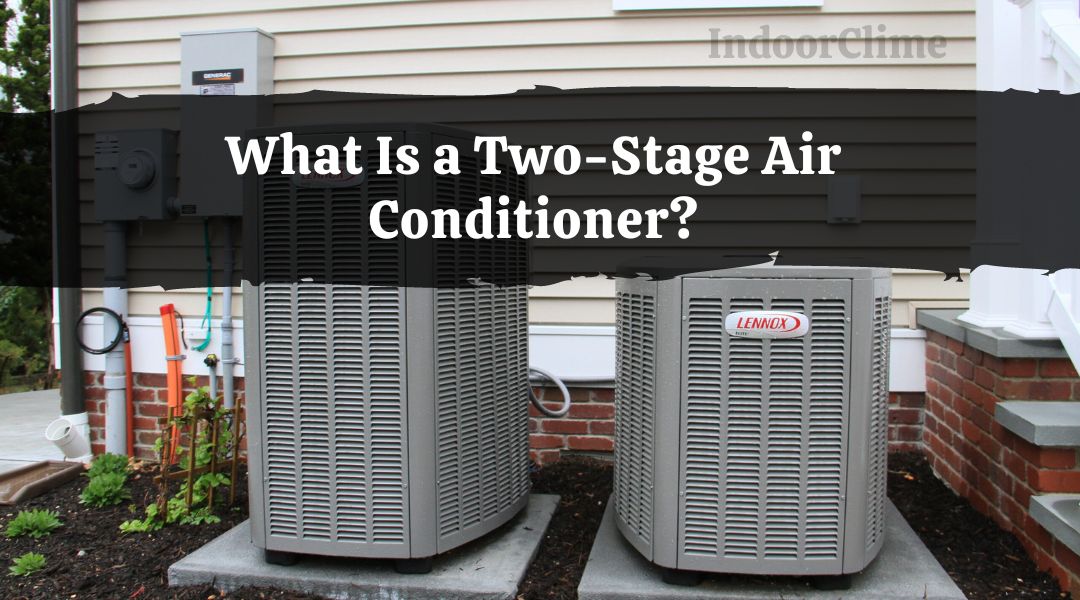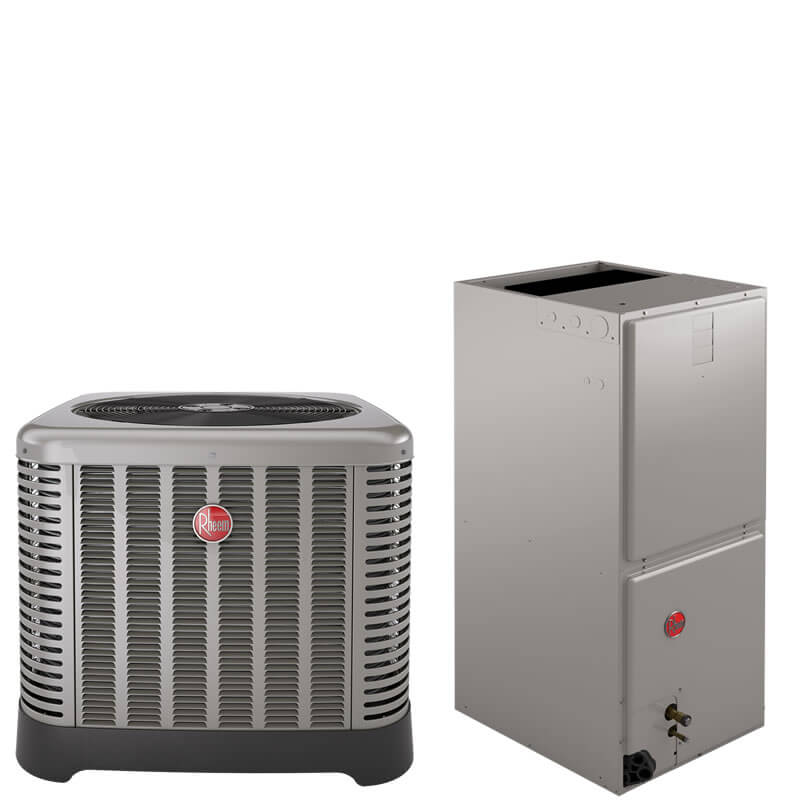Marvelous Tips About How To Know If AC Is 1 Stage Or 2-stage

Decoding Your AC
1. Understanding AC Staging
So, you're curious about your air conditioner's personality, huh? Specifically, whether it's a simple "on-off" kind of appliance (a single-stage AC) or a more nuanced "chill-then-freeze" type (a two-stage AC). Knowing this little secret can unlock better comfort and maybe even save you some cash. Think of it like this: is your AC a one-speed bicycle or a fancy mountain bike with gears for different terrains? Let's find out!
Many homeowners don't even realize there are different types of ACs. It's easy to just set it and forget it, especially when the summer heat is bearing down. But understanding the capabilities of your system can make a big difference in your comfort and your energy bill. Imagine driving a car that only had one gear. You'd get there eventually, but it wouldn't be a very smooth or efficient ride, would it? The same principle applies to your home cooling.
The keyword term we use to this article is "How to know if AC is 1 stage or 2-stage". The part of speech of our keyword is a noun phrase. This is crucial because it guides our understanding of what information readers are searching for. They want a practical guide, not just a theoretical explanation. Knowing this helps us structure the article with clear, actionable steps.
Before we dive into detective work, lets just be clear that most older AC units are single-stage. Two-stage systems are relatively newer, offering more precise cooling and efficiency. But age isnt the only factor. Lets roll up our sleeves and start investigating!

Spotting the Clues
2. Checking the Unit
Alright, let's get hands-on! Your first mission is to locate the AC unit itself. This is usually outside your house, often near the foundation. Arm yourself with a notepad, a pen, and possibly a flashlight if it's getting dark. Don't worry, you won't need a magnifying glass or deerstalker hat... unless you really want to embrace your inner Sherlock Holmes.
Once you've located the unit, carefully examine it for any labeling. Look for a model number. This is usually a series of letters and numbers printed on a sticker or plate. Write this down it's your key to unlocking a lot of information. The model number is like the AC's DNA; it tells manufacturers (and you!) exactly what it is and what it's capable of. Think of it as the AC's social security number.
Now, armed with the model number, you can unleash the power of the internet! A quick search on Google (or your preferred search engine) will often lead you to the manufacturer's website or a product brochure. These resources usually spell out the systems features, including whether it's a single-stage or two-stage model. Just type "AC model number specifications" into the search bar, and you should get some solid results. Don't be afraid to dig a little!
If you can't find anything online, don't despair! You can try contacting the manufacturer directly. Most companies have customer service departments that can help you decipher the model number and provide the specifications. They might ask you a few questions about your system, so be prepared to answer them. It's like calling in the experts to solve the mystery for you.

Listening for the Shift
3. Listening to Your AC Operate
Okay, visual inspection didn't quite crack the case? No problem! Lets use our ears. During normal operation (when the AC is actively cooling your home), pay close attention to the sound it makes. This is especially helpful if you've lived with the unit for a while and are familiar with its usual sounds. Consider it like learning the unique purr of your cat you know when something's different!
A single-stage AC typically operates at one speed: full blast. When it kicks on, you'll hear a consistent, relatively loud hum. It's like a train leaving the station — it goes from zero to full speed in a hurry. Then, when it reaches the desired temperature, it shuts off completely. This on-off cycle can be quite noticeable. There's no gentle coasting; it's all or nothing!
A two-stage AC, on the other hand, operates with more finesse. When it starts up, it usually begins in its lower stage, producing a quieter, more subtle hum. It's like a car gently accelerating onto the highway. If the cooling demand is high (for example, on a very hot day), it will eventually ramp up to its higher stage, producing a sound similar to a single-stage AC at full blast. But the key difference is that initial "lower gear" sound. You might also notice that it runs for longer periods, but more quietly, than a single-stage system.
The key thing to listen for is that shift in intensity. If you hear the AC starting quietly and then getting louder, that's a strong indication it's a two-stage unit. Of course, this test is most effective when you know what to listen for, so try to familiarize yourself with the baseline sound of your AC before you try to identify any changes.

Heat Pump Correctly Installed And Wired? R/Nest
Checking Your Thermostat
4. Examining Your Thermostat
Your thermostat is the brain of your HVAC system. It's where you tell your AC what to do and when to do it. So, it makes sense to check it for clues about your AC's staging. Examine your thermostat's settings and display. Some thermostats specifically indicate whether they are controlling a single-stage or multi-stage system. This is especially true for smart thermostats.
Look for settings that refer to "stages" or "fan speeds." If your thermostat offers multiple fan speeds (e.g., low, medium, high, auto), it might be compatible with a two-stage system. However, this isn't a foolproof indicator. Some single-stage systems also have multi-speed fans for circulation. The presence of these settings doesn't guarantee a two-stage AC, but it's worth investigating.
If you have a programmable thermostat, check the programming options. Some advanced thermostats allow you to program different temperature settings for different times of the day. This is more common with two-stage systems, as they can maintain a more consistent temperature and avoid large temperature swings. The ability to precisely control the temperature throughout the day suggests a more sophisticated, and potentially two-stage, system.
Refer to your thermostat's manual. It might contain information about the types of systems it's compatible with. Most thermostat manufacturers have online manuals available for download. This is often the most reliable way to determine if your thermostat is designed to control a two-stage AC. A quick search for your thermostat model number should get you started.

Calling in the Pros
5. Consulting an HVAC Professional
If you've exhausted all other options and are still unsure whether your AC is single-stage or two-stage, it's time to call in the professionals. A qualified HVAC technician can quickly and accurately identify your system's capabilities. They have the experience and tools to diagnose your AC and provide you with the information you need.
When you schedule a service call, be sure to specifically ask the technician to determine the staging of your AC. They will likely perform a visual inspection of the unit, check the wiring and components, and may even use diagnostic equipment to assess its performance. They can also explain the benefits of each type of system and help you decide if upgrading to a two-stage AC is right for you.
Think of it as visiting a doctor when you can't self-diagnose. You can describe your symptoms and maybe even guess what's wrong, but ultimately, a professional can give you the definitive answer. An HVAC technician will examine the physical unit, look at any electrical schematics, and run diagnostics to determine the staging of your AC unit. In some cases, they might even use specialized equipment to monitor the AC's operation and confirm how it functions.
Don't be afraid to ask questions! A good HVAC technician will be happy to explain the differences between single-stage and two-stage systems and answer any concerns you may have. They can also provide you with a quote for any necessary repairs or upgrades. Getting a professional opinion can give you peace of mind and ensure that you're making informed decisions about your home cooling.

Single Vs. Two Stage Snow Blowers Ace Hardware YouTube
FAQ
6. Frequently Asked Questions
Alright, let's tackle some common questions that pop up when people are trying to figure out their AC's personality:
Q: What's the big deal? Why does it matter if my AC is 1-stage or 2-stage?A: Good question! Two-stage ACs offer more consistent comfort and can be more energy-efficient. They're better at dehumidifying and avoid those uncomfortable temperature swings you sometimes get with single-stage units. Plus, they often run quieter on their lower setting. It's all about a more refined cooling experience!
Q: Can I upgrade my single-stage AC to a two-stage system?A: Potentially! It depends on your existing ductwork, electrical capacity, and your budget. It's a significant upgrade that usually involves replacing the entire outdoor unit. Consult with an HVAC professional to get a personalized assessment.
Q: My AC is old. Does that automatically mean it's single-stage?A: It's highly likely. Two-stage ACs are a relatively newer technology. But age isn't the only indicator. Follow the steps above to confirm.